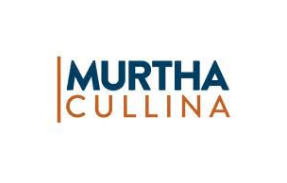On May 10, 2022, the Connecticut Supreme Court issued an extremely important decision in AGW Sono Partners, LLC v. Downtown Soho, LLC, et al. (SC 20625), addressing several COVID-19 related defenses being asserted by commercial tenants as a result of the Governmental Executive Order closures and the pandemic as a whole. The Court also resolved the issue of who has the burden of proof regarding the duty to mitigate damages.
In AGW Sono Partners, the tenant, a restaurant and bar operator, ceased paying rent due to the impacts of the Governor’s Executive Orders forcing the closure of its business, as well as the effects of the pandemic. The landlord exercised its rights under the law and the lease and terminated the lease. The tenant ultimately vacated. The landlord filed suit to collect the unpaid rent and damages resulting from the breach of the commercial lease. The tenant asserted several defenses, including most notably the defenses of the doctrine of impossibility and frustration of purpose. Following a bench trial, the Trial Court issued judgment in favor of the landlord finding that the tenant was not excused from its rental obligations based on the doctrines of impossibility and frustration of purpose. The Trial Court entered a monetary judgment, but did not award all of the landlord’s damages, asserting that there was insufficient information regarding mitigation of damages.
The Supreme Court affirmed the Trial Court decision regarding the defense of impossibility, concluding that the effects of the Executive Order and the pandemic did not render performance of the lease obligations impossible. The Supreme Court agreed with the Trial Court that even under the most restrictive Executive Orders, performance was not rendered totally impossible since the restaurant could still have provided curbside or takeout service, and notably the lease did not prohibit that from happening. In addition, the Supreme Court noted that, while the lease lacked a force majeure clause, the lease had other language making it clear that the defendant/tenant bears the obligations of complying with all laws, orders and regulations, and to the extent there was forgiveness in crisis situations, the lease only excuses the plaintiff/landlord’s obligations.
Similarly, the Supreme Court affirmed the Trial Court’s decision regarding the defense of frustration of purpose. The Supreme Court, acknowledging the doctrine is given a narrow construction, concluded that the purpose of the lease was not frustrated by the Executive Orders or the pandemic. Again, the Supreme Court emphasized how the language of the lease did not limit certain types of dining and did not preclude takeout or subsequent outdoor dining.
Lastly, the Supreme Court addressed the issue of who has the burden of proof with respect to mitigation of damages. The Court first repeated well established law in Connecticut that when a landlord elects to terminate a lease and pursue a breach of contract claim, the landlord is obligated to mitigate its damages. Even though it was the tenant that asserted the defense of failure to mitigate damages, the Trial Court had put the burden on the landlord with respect to proving its mitigation efforts and concluded the landlord failed to present sufficient information thereby lowering the damages. The Supreme Court, otherwise acknowledging this was unresolved law in Connecticut, concluded that when a tenant has breached a lease, the tenant bears the burden of proving that the landlord failed to undertake commercially reasonable efforts to mitigate its damages. Therefore, the Supreme Court reversed and remanded that case back to the Trial Court solely with respect to a further proceeding on damages.
https://www.jdsupra.com/legalnews/important-connecticut-supreme-court-5534060/




